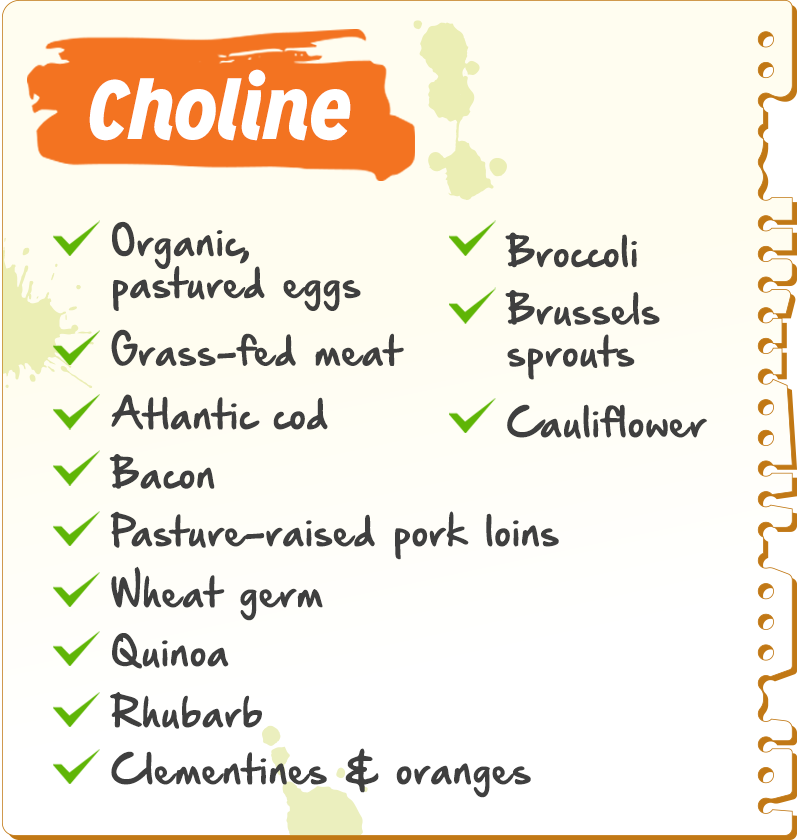Choline
Recognized as an “essential nutrient,” meaning your body requires it but can’t make (enough of) it, you need to ensure you get sufficient choline from your diet and possibly a supplement. Sometimes grouped with the B vitamins, choline helps your brain, liver, muscles, nervous system and overall metabolism function. Choline is crucial during fetal development, playing a key role in preventing birth defects.
Fast Fact: 90% of Americans – and as many as 95% of pregnant women – fail to get adequate choline.
Why You Need It: Choline is essential to healthy brain and nervous system development and function. It is a precursor for the production of the neurotransmitter acetylcholine, which is integral to your memory, cognition and muscle control. Choline is particularly vital during pregnancy, breastfeeding and in early childhood. Like folic acid, it helps prevent birth defects. Breastfed babies have a high need for choline to ensure proper brain development. The FDA, in fact, requires choline to be included in infant formulas. Getting sufficient amounts of choline in childhood can confer lifelong benefits to the nervous system.
Choline plays a major role in transporting fat and cholesterol from the liver to the other parts of your body that need them. Choline deficiency can lead to fat build-up in the liver, making it harder for the liver to filter out harmful substances you are exposed to in your diet and the environment. Non-alcoholic fatty liver disease, which is associated with diets high in fructose and deficient in choline, affects approximately 1 in 3 Americans, including children. Also, choline is necessary for the structural integrity of cell membranes, and its anti-inflammatory properties are an area of active study.

× ![]()
Best Food Sources: Egg yolks are a great source of choline. Choose organic, pastured eggs. Other choline-rich foods include grass-fed meats, cold-water fish such as Atlantic cod, bacon, pasture-raised pork loin, wheat germ, edamame, quinoa and amaranth, and firm tofu. Rhubarb, citrus fruits and juices, and cruciferous vegetables such as broccoli, Brussels sprouts, and cauliflower are also good sources, but contain far less than the animal sources.
Supplement Suggestions: Antarctic krill oil is an excellent and sustainable choice (plus a top source of omega-3s). CDP-choline is often recommended because it’s said to more easily cross the blood-brain barrier. Other good choices include the less expensive choline bitartrate, or choline chloride or phosphatidylcholine (lecithin). Most prenatal supplements do not contain choline. How much choline you need depends on your gender, age, genetic makeup, diet, among other factors. Be sure to ask your healthcare practitioner what’s right for you.
Need to Know: Up to 40% of Americans may have a common gene variation that further increases their need for choline.
Check out our food and supplement shopping tips.